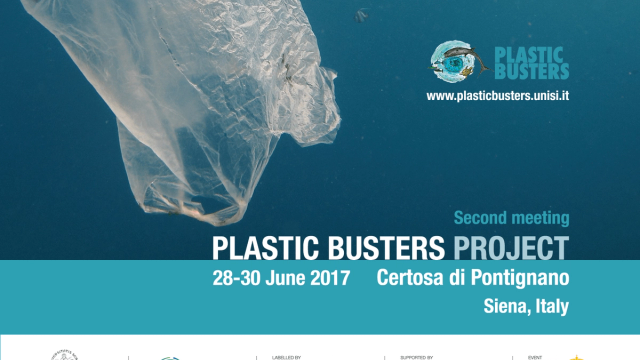Plastic Busters: Realizing #SDG14 in the Mediterranean
Marine litter has become a pervasive environmental problem affecting the world’s seas. It is widely documented that marine litter, such as plastics and derelict fishing gear, have negative impacts on human livelihood, marine wildlife, marine ecosystems, beach quality, navigational safety, and fishing and maritime industries. In recognition of this global issue, a number of formal and informal initiatives have been developed at global, regional (e.g. OSPAR, UNEP Regional Seas Programme, MSFD), national, and local scales. Throughout these, it is unanimously understood that sound scientific knowledge and coordinated multi-sectoral actions are key to combating marine litter.
The Plastic Busters project was created to convene stakeholders and gather knowledge on the occurrence, amounts, sources, and impacts (including socioeconomic impacts) of marine litter. The project will underpin the implementation of joint actions to reduce litter generating activities while codifying and promoting a wide range of measures to be replicated throughout the Mediterranean.
From 28 to 30 June 2017, the second meeting of the project, “Plastic-Busters for a Mediterranean free from litter,” was held at Certosa di Pontignano, Siena, Italy. It was led by the University of Siena and SDSN and in close partnership with UN Environment/MAP, with support from the German Federal Ministry for Economic Cooperation and Development, BMZ, GIZ (Deutsche Gesellschaft für Internationale Zusammenarbeit), and the Union for the Mediterranean Secretariat.
The participants dove straight into on-the-job training and demos on marine litter monitoring in Maremma National Park at the Talamone Sea Turtles Rescue Centre. The participants benefitted from the opportunity to experience the issue of marine litter first-hand and, as a result, better understand the need to develop a joint project to service the Mediterranean, such as the Plastic Busters project.
On the second day, the meeting moved to Pontignano, Siena. The morning was dedicated to more technical issues, namely focusing on the effects of plastics on Mediterranean marine life. A presentation of a protocol for monitoring marine litter in the Mediterranean Sea followed, using bioindicator organisms to measure progress and focusing on the following topics:
- current knowledge of litter ingestion by Mediterranean marine organisms,
- selection criteria for choosing sentinel species,
- the threefold monitoring approach to detect marine litter presence and impact in bioindicator organisms, and
- bioindicator selection strategy in relation to habitat and home range.
Marine litter experts from southern Mediterranean countries presented comparable initiatives from the MENA region and the Ministries of Environment from Israel, Lebanon, and Morocco. The day concluded by analyzing possible funding opportunities and links to already existing projects, initiatives, and programs such as the ENI CBC Program, Calls of the Italian Ministry of Foreign Affairs , and ACT4Litter.
The issue of marine litter falls under Sustainable Development Goal 14: “Conserve and sustainably use the oceans, seas and marine resources,” specifically within indicator 14.1: “Prevent and significantly reduce marine pollution of all kinds, in particular from land-based activities, including marine debris and nutrient pollution.” Marine pollution affects both the environment and its organisms and conservation of both has socioeconomic impacts on various aspects of human society. For this reason, this year’s High-Level Political Forum (HLPF) placed specific emphasis on SDG 14. The HLPF session produced an official thematic review of SDG 14 and hosted a multitude of events proposing and outlining action toward its achievement. Now, it is up to us (and Plastic Busters) to keep the momentum going.
